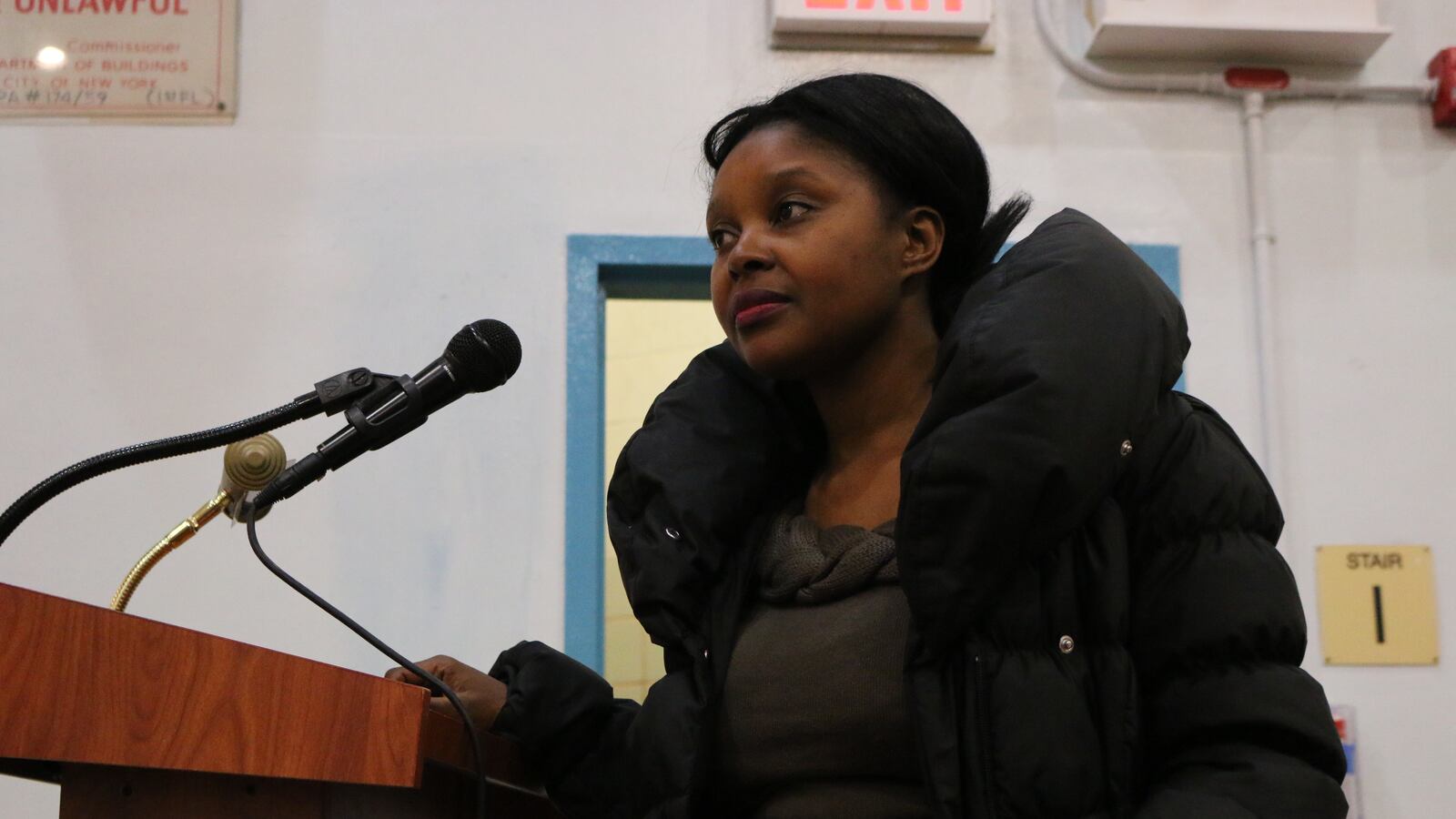After raucous protests against plans to integrate New York City’s specialized high schools, parents in Brooklyn’s District 16 aired starkly different concerns about efforts to overhaul admissions at the coveted schools.
At a public meeting Monday night, parents in Bedford-Stuyvesant asked education department officials how they plan to support black and Hispanic students at specialized high schools, where those students are dramatically underrepresented.
“There are stakeholders within this city who do not want our children in those schools,” said Mutale Nkonde, a district parent with two children. “Ultimately, these are our children who we’re sending into potentially hostile environments.”
Mayor Bill de Blasio ignited a firestorm this summer with a push to eliminate the entrance exam that currently stands as the sole entrance criteria for the city’s specialized high schools. Critics blame the test for segregation at the schools, where only 10 percent of students are black or Hispanic, compared with almost 70 percent who are in district schools citywide. Alumni and some parents have vigorously pushed to keep the Specialized High School Admissions Test, or SHSAT, arguing it’s an unbiased measure that helps ensure the schools’ prestige.
But parents in District 16 brought different demands to the table. Students in the district are mostly black, and 84 percent are from low-income families. Parents called for teaching practices that reflect the diverse experiences and cultures of these students. To underscore the need for a more welcoming environment at the elite schools, one parent pointed to a social media campaign in 2016 in which students posted about discrimination they faced at one specialized high school with the hashtag “Black in Brooklyn Tech.”
Parents also decried the education department’s efforts as small scale — only 25 black students from the district would be admitted to specialized high schools under the city’s plans. In a district where test scores are historically low and retaining students in local schools is a struggle, parent leaders said more systemic approaches are needed to lift performance and vaunt black, Hispanic, and low-income students to success.
Since the SHSAT is enshrined in state law, legislators will have to act on de Blasio’s plan. In the meantime, the city is expanding a program that offers admission to students who score just below the entrance cutoff.
“Our needs are not going to be met by getting the exact same things that everyone else gets,” said Lurie Daniel Favors, a parent and general counsel at the Center for Law and Social Justice at Medgar Evers College.
The meeting was in sharp contrast to last week, when about 300 parents packed a meeting that quickly grew heated in Manhattan’s District 2, a wealthy enclave that sends an outsized share of students to specialized high schools. Many of those present argued the city’s plan would send unprepared students to rigorous schools. Backlash in the Asian community has been particularly fierce; more than 60 percent of students at specialized high schools are Asian, compared with just 16 percent citywide.
Education department leaders highlighted a pilot initiative already underway at two specialized high schools to address climate concerns, including anti-bias training for students and staff at High School of American Studies at Lehman College, and training for black and Hispanic parents at Brooklyn Tech who will help serve as recruitment ambassadors for the school. They also pointed to initiatives such as an expansion of pre-K for 3-year-olds in District 16 as proof that the city is tackling wider inequities in the system.
“The fact that we had ‘Black in Brooklyn Tech,’” where young people were asking, “‘Is this a place for me?’ is a problem,” said LaShawn Robinson, deputy chancellor for school climate and wellness. “We have to address those problems, because every school in this system is a place for our young people.”

